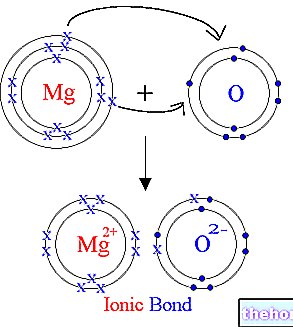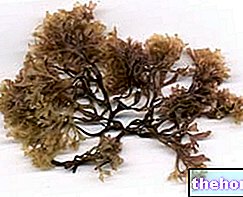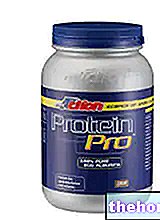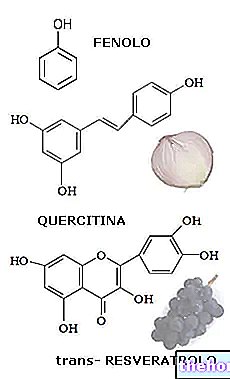Glycerol, or glycerin, is a chemical compound consisting of two primary alcohol groups and a secondary alcohol group. It appears as a colorless, viscous, water-soluble liquid with a sweetish taste.
Glycerol is known to be a component of triglycerides, from which it is separated during the breakdown of lipids.
At the hepatic level, its catabolism leads above all to the formation of glucose, the fate of which differs according to the nutritional status of the subject.
In conditions of high blood sugar (after a large meal), glucose is transferred to the liver deposits, where it is accumulated in the form of glycogen; if the liver reserves have already been saturated, the newly formed glucose will instead be converted into reserve triglycerides.
However, it should be noted that in such situations the oxidation of lipids is modest and with it also the release of glycerol. Furthermore, not all molecules are converted into glucose, a certain amount can in fact be directly used by glycolysis and oxidized in the Krebs cycle. The complete catabolism of a single glycerol molecule synthesizes a total of 19 molecules of ATP, 4.3 Kcal is released for each oxidized gram.

Gluconeogenesis (formation of glucose from non-glucidic substrates, in this case glycerol) is particularly active during prolonged fasting. In these conditions glucose is mainly conveyed to nervous tissue, erythrocytes and retina, while the fatty acids to which it was bound act as a substrate for the production of ketone bodies.
When fasted, a normal man produces about 18 g of glycerol in 24 hours; the quota increases with respect to baseline values when there is a significant depletion of carbohydrate reserves, as occurs in the case of dietary restriction of carbohydrates or following prolonged physical exercise.
A CURIOSITY: when glycerol is heated to high temperatures it forms acroelin, an unsaturated aldehyde, with an acrid odor and particularly irritating to the mucous membranes. This compound enhances the harmful properties of fried fats.
Indications
Why is glycerol used? What is it for?
In addition to its ergogenic properties, still under scrutiny by experts, glycerol is used in both clinical and sports settings for its osmotic properties.
Thanks to these properties, glycerol is able to draw water from the surrounding tissues, exerting, depending on the case, a hyper-hydrating or diuretic effect.
For this reason, glycerol is used, especially in endurance sports, as a useful remedy for body rehydration and general performance improvement.
Properties and Effectiveness
What benefits has glycerol shown during the studies?
Although the literature is still skeptical about the efficacy and especially the safety profile of glycerol, there are studies from which it is possible to infer the role of this molecule.
Glycerol in the medical and health fields
In the medical field, glycerol is administered in a 10% solution as a diuretic drug.
Thanks to its ability to raise the osmotic pressure of the blood, drawing water from the tissues, it is also used in anti-edema therapies.
In the health field, glycerol is also used in the fight against constipation, in the form of enemas and suppositories. It is one of the few laxatives allowed during pregnancy.
The hygroscopicity of this compound is also exploited in the preparation of emollient products, capable of making the superficial layers of the skin soft and soft, increasing its elasticity.
Glycerol in the sports field
In sports, glycerol is used as a diuretic and as a moisturizing / volumizing agent.
The use of this supplement is considered a doping practice in the United States, where it was recently included in the category of diuretics.
When absorbed together with 1-2 liters of water, glycerol facilitates the absorption of liquids in the intestine and their retention in the plasma ("sponge effect").
All this translates into better body hydration, which promotes sweating and, consequently, prevents excessive increases in internal temperature during physical effort (heat stroke).
For this reason, glycerol is a very popular supplement among marathon runners and other athletes engaged in endurance disciplines, especially when they are carried out in unfavorable weather conditions.
During a generic sporting performance there is a water loss much higher than 2% of the body weight.
The consequent state of dehydration affects sports performance, through various adaptation mechanisms:
- Appearance of cardiac and vascular stress due to a reduction in plasma volume;
- increased heart rate (tachycardia) and body temperature (hot flashes, cramps, migraines, weakness up to cardiovascular collapse);
- Appearance of general debilitating symptoms such as discomfort, fatigue, apathy, depression,
- Inability to sustain effort for long periods of time
From this it can be deduced that glycerol, thanks to its presumed ability to limit water losses, could have a significant beneficial effect on sports performance carried out in hot environments.
Before taking glycerol supplements, in addition to taking into account the existence of studies that deny their ergogenic properties, the athlete should test their physical response to the supplement during training.
Dosage and method of use
How to use glycerol
The use of glycerol for ergogenic purposes involves the ingestion of 1g of glycerol per kg of body weight, to be taken with abundant liquids (about 2L) in the 2-3 hours preceding the competition.
In order to avoid unpleasant side effects, it is recommended to avoid the intake of glycerol during competition.
The use of glycerol as a possible diuretic and draining remedy is strongly contraindicated due to the potential side effects.
Side effects
The most frequently observed side effects following the use of oral glycerol would affect the gastrointestinal tract, with the appearance of swelling, nausea, vomiting and diarrhea.
The risks related to the onset of hypertension, heart rhythm disturbances, migraines, confusional state, fatigue and amnesia are also clinically relevant.
Hyperosmolarity, sometimes associated with hyperglycemia, has instead been described in diabetic subjects supplemented with glycerol.
Gastrointestinal adverse reactions have been observed very rarely.
water retention (negative effect because it increases body weight; in a marathon one kg too much leads to an increase of about 4 seconds in the walking time per kilometer)
Contraindications
When should glycerol not be used?
The use of glycerol is contraindicated in dehydrated, anuric patients, suffering from heart failure, pulmonary diseases and edema.
Evidently the contraindications to the use also extend to patients hypersensitive to the active principle.
Pharmacological interactions
What drugs or foods can modify the effect of glycerol?
No noteworthy drug interactions are currently known.
However, please note that the contact between glycerol and strong oxidizing agents could induce explosions.
Precautions for use
What do you need to know before taking glycerol?
The use of glycerol is generally contraindicated during pregnancy and breastfeeding.
Patients suffering from heart, liver and kidney diseases should avoid the use of glycerol supplements or use them, if strictly necessary, only after consulting their doctor.
Precautions also necessary for all diabetic patients.
The use of glycerol supplements cannot be separated from the contextual adequate intake of liquids.




























